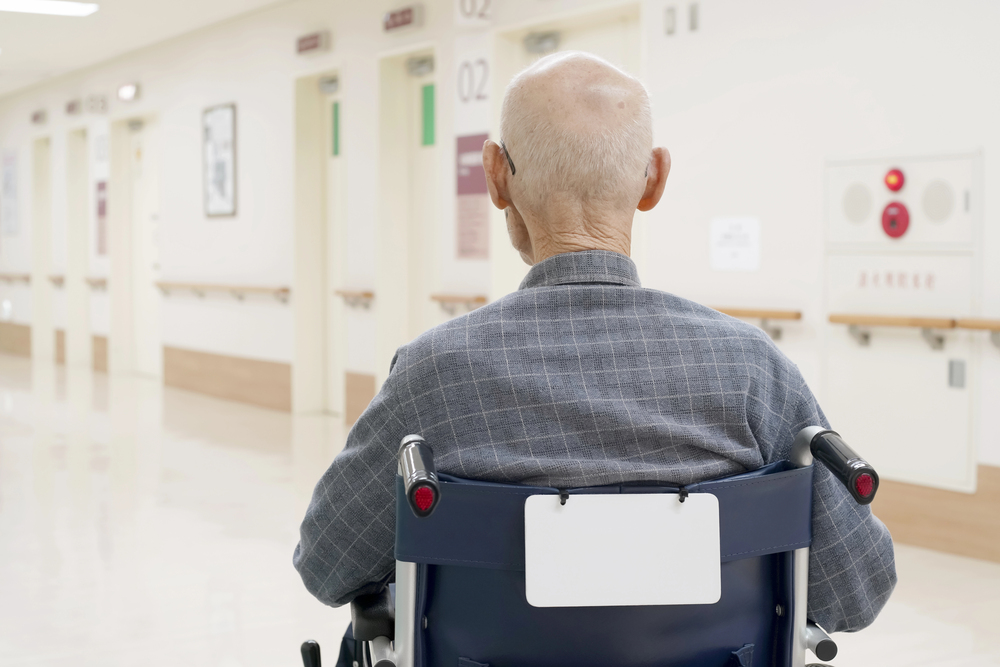Nursing Home Reform Act

The Nursing Home Reform Act (NHRA) is a landmark federal law passed in 1987 as part of the Omnibus Budget Reconciliation Act (OBRA). It was created to address the widespread problem of substandard care in nursing homes receiving Medicare and Medicaid funding.
For the first time, the federal government established a consistent national framework to ensure that nursing home residents receive adequate care and that their basic rights are protected.
The NHRA set minimum care standards, introduced a bill of rights, and required facilities to provide high-quality care as a condition for receiving federal funding. This legislation became a turning point for resident care, promoting accountability, dignity, and safety in nursing facilities nationwide.
Overview of the Nursing Home Reform Act
Part of the OBRA
The NHRA was passed in 1987 as part of the Omnibus Budget Reconciliation Act (OBRA), after widespread reports revealed serious failures in nursing home care nationwide.
The federal government responded by enacting the NHRA to protect residents from neglect, abuse, and inadequate care, especially in facilities receiving Medicare or Medicaid funding.
This federal law introduced enforceable care standards, mandated comprehensive care plans, and established the bill of rights for nursing facility residents. It also required routine state monitoring, unannounced surveys, and consequences for facilities providing substandard care.
The NHRA remains a foundation for nursing home reform, aimed at ensuring proper care and dignity for elderly and vulnerable residents in long-term care.
The Nursing Home Residents’ Bill of Rights
The NHRA established the Nursing Home Residents’ Bill of Rights to protect individuals living in nursing homes that receive Medicare or Medicaid funding. These rights guarantee dignity, privacy, and freedom from physical or mental abuse, including protection against unnecessary restraints.
Residents also have the right to participate in their own care decisions, maintain their personal belongings, and manage their financial affairs. They may join resident and family groups, receive visitors, and voice grievances without fear of retaliation. These protections promote self-determination, proper care, and respect for every nursing home resident’s well-being.
Ensuring Quality Care in Nursing Homes
NHRA set a clear expectation that nursing homes receiving funding through Medicare or Medicaid must provide services to help residents reach or maintain their highest practicable level of physical, mental, and psychosocial well-being. This standard goes beyond basic care—it requires facilities to tailor their services to each resident’s unique needs and goals.
Facilities must develop comprehensive care plans, ensure adequate nursing home staffing, and offer access to necessary medical, therapy, and social services. The focus is on providing proper care that supports both health and independence.
Whether a resident is recovering from surgery or living with chronic conditions, the NHRA ensures that the facility has a legal duty to promote the best possible outcomes, not just prevent decline. Failing to meet this standard may be considered neglect under federal law.
Addressing Elder Abuse and Neglect
The NHRA places a legal obligation on nursing homes to protect residents from elder abuse, neglect, and exploitation. Facilities must have policies in place to prevent harm and respond immediately to any allegations of abuse. This includes protecting residents from mistreatment by staff members, visitors, or other residents.
The law prohibits physical restraints, involuntary isolation, and any form of punishment or intimidation. When abuse or neglect is suspected, facilities are required to investigate and report the incident promptly. Failure to do so can result in penalties, loss of funding, and legal action by families.
Enforcement Issues and Compliance Monitoring
To ensure nursing homes follow the standards set by the NHRA, the law requires unannounced surveys and inspections conducted by state monitoring agencies.
These surveys evaluate whether facilities are providing proper care, respecting residents’ basic rights, and complying with federal law. If violations are found, facilities may face enforcement actions such as fines, denial of funds, or temporary state management.
Despite these tools, enforcement remains a challenge. Limited resources, inconsistent oversight, and delayed responses to complaints have allowed some nursing home facilities to continue delivering substandard care. In some cases, serious issues are uncovered only after harm has occurred.
Strengthening compliance efforts, increasing penalties, and supporting resident and family groups remain essential to ensuring the law’s protections are fully realized and that nursing home quality is not compromised.
The Role of the Federal Government in Nursing Home Reform
The federal government, primarily through the Centers for Medicare & Medicaid Services (CMS), oversees the implementation of the Nursing Home Reform Act. CMS sets national standards for quality of care, monitors compliance, and works with state agencies to conduct unannounced surveys and investigate complaints.
Facilities that fail to meet federal requirements may lose access to funding. CMS also collects data, tracks violations, and publishes reports to keep residents and families informed. This federal oversight is critical to enforcing care standards and ensuring that all residents receive adequate care in safe, respectful environments.

State Laws Complementing the NHRA
While the Nursing Home Reform Act establishes minimum federal standards, many states have enacted additional laws to strengthen protections for nursing home residents.
These state-level regulations often expand on the residents’ rights outlined in the Bill, introduce stricter staffing requirements, or mandate faster reporting of suspected nursing home abuse and neglect.
Some states allow for more significant legal action by families or impose higher penalties for substandard care. Others enhance transparency by publishing inspection results or maintaining watchlists of poorly performing nursing facilities.
State laws also help ensure that local concerns, such as access to social services, cultural needs, or specific resident care issues, are addressed alongside federal law. Together, state and federal oversight work to promote proper care and protect nursing home residents’ health, dignity, and self-determination.
Recognizing Violations of Residents’ Rights
Spotting violations of the Bill of Rights can help prevent further harm. Common warning signs of abuse in a nursing home include unexplained injuries like bruises, cuts, or bedsores, especially when staff offer vague or conflicting explanations.
Sudden behavioral changes—such as withdrawal, anxiety, or fear of specific caregivers—may signal emotional abuse or neglect. Unsanitary conditions, including dirty bedding, foul odors, or unchanged clothing, point to a failure in basic care.
Residents being ignored, overmedicated, or excluded from care decisions may also indicate violations of their rights under the Nursing Home Reform Act. Families should act quickly if these signs appear.
Legal Recourse for Violations of the NHRA
Residents and their family members can pursue legal action when a nursing home fails to comply with the NHRA. Options include filing a complaint with the state survey agency or the CMS, which may trigger inspections, penalties, or loss of funding for the facility.
In more serious cases involving nursing home abuse, neglect, or injury due to inadequate care, families may choose to file a civil lawsuit. These claims can help recover damages for medical costs, pain and suffering, and loss of dignity.
Working with an experienced attorney can help families understand their rights under federal law, gather evidence, and hold nursing home facilities accountable for violating the Bill of Rights or providing substandard care.
The Impact of the NHRA on the Quality of Care in Nursing Facilities
Since its passage, NHRA has driven significant improvements in nursing home care. Facilities must maintain proper staffing levels, develop personalized care plans, and provide services supporting nursing home residents’ physical and emotional well-being.
The law also led to a sharp reduction in the use of physical restraints and emphasized resident autonomy, giving individuals more control over their daily lives and medical decisions. By establishing clear standards and accountability, the NHRA has helped shift the focus in nursing homes from institutional care to dignified, resident-centered care.
Challenges and Criticisms of the NHRA
While the NHRA set necessary national standards, its goals haven’t been fully achieved in every facility. One of the biggest challenges is inconsistent enforcement. While the law requires state monitoring and unannounced surveys, oversight varies widely by state, and some violations go unchecked for too long.
Resource limitations, staffing shortages, and lack of public awareness can also weaken compliance. In some cases, nursing homes continue to provide inadequate care while technically meeting minimal federal requirements.
Critics argue that penalties for substandard care often aren’t substantial enough to force meaningful change. Others point to the need for updates that reflect modern resident care needs and expanded protections for vulnerable nursing home residents.
Improving enforcement and closing compliance gaps remains essential to achieving the NHRA’s original vision of proper care in every facility.
The Future of Nursing Home Reform
As the needs of residents evolve, lawmakers and advocates are calling for updates to the NHRA. Proposed reforms focus on improving nursing home staffing levels, increasing transparency in ownership and operations, and strengthening enforcement tools to better address substandard care.
There’s also momentum to expand resident access to mental health services, reduce unnecessary hospital transfers, and promote more individualized care plans. With an aging population and ongoing concerns about nursing home quality, future changes aim to reinforce the NHRA’s mission—ensuring that all residents receive safe, respectful, and proper care.
The Importance of Advocacy and Legal Support
Enforcing the rights guaranteed under the NHRA often requires action from both advocates and legal professionals. When nursing homes fail to meet their obligations, families and residents need trusted support to hold facilities accountable.
Legal advocates help identify violations of the Bill of Rights, pursue justice for victims of nursing home abuse, and compel facilities to correct inadequate care. They also assist with filing complaints, interpreting federal law, and guiding families through the complex process of pursuing compensation.
Attorneys and advocacy organizations play a vital role in upholding the promise of the NHRA, ensuring that residents receive high-quality care and are treated with the dignity, respect, and protection they deserve.

How Our Law Firm Can Assist You
If you believe a loved one’s rights under the NHRA have been violated, our team at Nursing Home Law Center is here to help. We have extensive experience handling cases involving nursing home abuse, neglect, and violations of the Bill of Rights for nursing facility residents.
Our nursing home abuse attorneys are committed to protecting residents and holding facilities accountable for providing substandard care or failing to follow federal law. We offer free consultations and work on a contingency fee basis, meaning you pay nothing unless we recover compensation for you.
To speak with a qualified lawyer today, call us at (800) 926-7565 or fill out our contact form. Let us help you take the next step toward protecting your family member’s rights and well-being.

